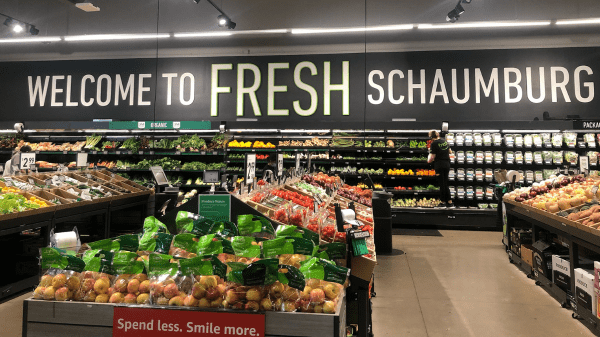Online grocery shopping—a market that nearly tripled in 2020, according to Packaged Facts—represent one area of the online world where Amazon BB #:283186 is not dominant.
It ranks behind Walmart in sales and perception, as well as facing significant competition from the fast-improving operations of traditional grocery retailers across the country.
More than half (51 percent) of Walmart shoppers purchased groceries in the first quarter of 2021, while only 23 percent of Amazon shoppers did the same, according to research by Amazon seller tool Jungle Scout.
And on Amazon Prime Day, held on both June 21 and 22 of this year, a survey of 31,000 orders conducted by market researcher Numerator found that only 16 percent included grocery purchases. As a result, Amazon is putting significant resources into changing this portion of its sales.
When Andy Jassy took over as CEO this year, founder and former CEO Jeff Bezos assumed the role of executive chair. His charge, among other tasks, is to focus on the company’s grocery business.
Joining the fray
The ecommerce giant’s expansion into the grocery segment, especially since the acquisition of Whole Foods in 2017 for $13.6 billion, has had a big impact on the overall grocery industry.
“Amazon forced supermarket operators across the United States to start looking at offering online groceries themselves, often as a defensive move,” observes Jon Hauptman, senior director of analytics at Inmar Intelligence in Winston-Salem, NC.
The pandemic accelerated this trend well beyond the influence of Amazon. It also cemented grocery retailers’ transition from ecommerce to an omnichannel focus that facilitates shopping in whatever way works best for consumers.
“Nearly every major grocery company in the world now understands that an omnichannel strategy is required,” says Ed McLaughlin, Robert G. Tobin professor of marketing emeritus at the Charles H. Dyson School of Applied Economics and Management at Cornell University in Ithaca, NY.
Bill Bishop, chief architect at Brick Meets Click, a retail consultancy based in Barrington, IL, northwest of Chicago, believes that since 2017, when the Whole Foods acquisition convinced many grocers that online shopping was the future and Amazon was a serious competitor, its influence has actually lessened.
“At this point, few grocers are reacting to Amazon,” Bishop explains. “Most don’t see it as an immediate threat. But some leading retailers are looking closely at what Amazon is doing to try to understand its grocery strategy.
“We expect that impact will increase over the next several years as retailers develop new, lower-cost ways to do grocery business and to leverage the data to significantly improve customer satisfaction with their stores,” Bishop says.
This is an excerpt from cover story of the November/December 2021 issue of Produce Blueprints Magazine. Click here to read the whole issue.



